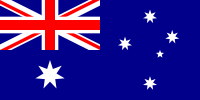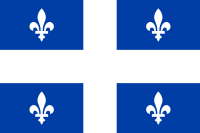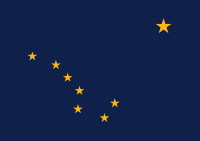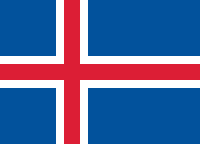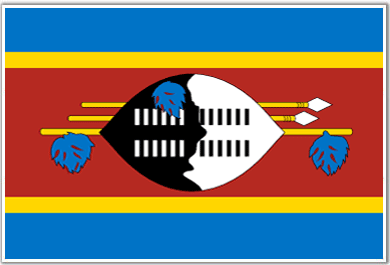Hawaii
Kingdom of Hawaii
1831 - 1894
Player: Lighthearter, CELTICEMPIRE, arya126
Nation Info
United in 1831, the Kingdom of Hawaii was an aggressive, authoritarian slave-trading state. In 1840, an international crisis was sparked by the King's sudden abdication, as Britain, California, the CSA and other powers make their bids for the territory. In 1842, Toyotami Yokusankai and his followers staged a coup; slavery was abolished and Islam was adopted as the state religion. The new regime was able to retain Hawaii's independence, and joined the UNA.
In 1873, the Canadian War of Independence broke out between the UNA and the Accord. Hawaii refused to support other UNA countries in the war and left the organisation. In retaliation, California, Librulstan and Tawantinsuyo went to war against Hawaii and its ally, Alaska. Hawaii hired British advisors and sold its Micronesian holdings to Australia to raise funds for the defence of the home islands. The Pacific War, as it became known, would stretch on for more than a decade. The Hawaiians fought valiantly against incredible odds, but eventually superior Californian firepower prevailed. Honolulu fell in 1889, and the last King of Hawaii surrendered in 1894.
In 1898, the Hawaiian Insurgency erupted over the brutality of the Californian occupation forces and the exploitation of Hawaiian people and resources. In 1900 the Californian government signed
a treaty with the main resistance group, the Hawaiian Resistance Front, ending hostilities and making Hawaii an autonomous region within California.
Horn of Africa
1831 - 1882
Player: civplayah, Domination3000
The Horn of Africa was a state based in Ethiopia. At one point, it controlled a swath of territory from Somalia on the Indian Ocean to Nigeria on the Gulf of Guinea. It was a liberal democracy and comprised of many different ethnicities. By 1874, however, the country was wrecked by instability. That year, the central government collapsed. Its successor states did not last long, and were soon swallowed up by their neighbors.
Canada
(Old Canada)
1821 - 1838
Player: ilduce349
Nation Info
Old Canada (as it is known by historians, to distinguish it from the modern state of Canada) rose out of the ashes of the United States of America. Located in what is now Ontario province of modern Canada, with its capital in Ottowa, it was briefly one of the most powerful states in North America. In 1838, however, the central government collapsed. Ontario was invaded by Quebec in 1840-1841, but the invasion was repulsed, at great cost. Ontario remained divided until it was briefly annexed by Great Britain in 1869. After a short war, modern independent Canada uniting Quebec, Ontario and the Prairies was established in 1877.
Québec
The Autonomous Protectorate of
The Most Glorious Socialist Duchy
and Constituencies of Québec
1821 - 1869
Player: Robert Can't
Nation Info
French-speaking Quebec seceded from the United States in 1821. It became one of the world's leading nations, especially in science and technology; Quebecois scientists made great discoveries in the 1830s. However, a failed invasion of Ontario and ineffectual leadership in the 1840s and 1850s sapped the nation of its strength. In the 1860s, a political movement rose in Quebec which called for union with France. In 1869, France formally annexed Quebec while its then-ally Britain annexed Ontario. This sparked a short war with the UNA, which culminated in the formation of modern Canada, of which Quebec is a part, in 1877.
Japan
Empire of Japan
1600 - 1870
Player: Domination3000
Nation Info
The history of modern Japan began in 1600, with the unification of the country under the Tokugawa shoguns. In the 1630s, the shoguns instituted the policy of Sakoku, or isolationism. By the 1830s, as the world was transformed by the industrial revolution, this policy was revised. The government was reformed and Japan embraced industrialisation, experiencing an economic boom in the late 1830s and 1840s. The new Japan also began to seek colonies overseas. The mainland Asian powers banded together to form the Alliance of the Three Kingdoms to counter the Japanese threat. When the Japanese attempted to take over northern China in 1860, war broke out. Japan and the ATK fought on and off for over 10 years; by 1870, the Home Islands had fallen and the Japanese had fled to the island of Taiwan. Later that year, the Japanese Imperial Government on Taiwan surrendered to the Alliance unconditionally.
The SRO
Socialist Republic of Odin
1805 - 1848
Player: Zack
Nation Info
The SRO was the successor to the Kingdom of Odin, which had unified Scandinavia under a theocratic regime but was overthrown by revolutionaries in 1805. The SRO can be said to be the world's first socialist country. Its leaders were early pioneers implementing a welfare state. For a while, it was a member of the Baltic Alliance with Russia and Germany.
The SRO split into its constituent countries by 1848. One by one, they joined or were forced to join the German Empire.
The Mughal Empire
1526 - 1890
Player: Farsight
Nation Info
The Mughal Empire was established in 1526 by Babur, and gradually expanded its control over most of India. However, by the 1800s the Empire was a shadow of its former self. Under a new Emperor, the Mughals slowly reconquered the subcontinent. It came into conflict against the Alliance of the Three Kingdoms. The Great Indian War (1875 - 1890) ended with the partition and colonisation of India by the Alliance.
Aanastin
1822 - 1838
Player: Abaddon
Nation Info
Brazil declared its independence from Portugal in 1822. Under a charismatic leader, it renamed itself Aanastin and became a totalitarian slave-state. In its ambitions to rule South America, it came into conflict with Tawantinsuyo. The Great Slave Revolt of 1836 - 1838 brought down the regime. An opportunistic Tawantinsuyo soon swooped in to claim Brazil for itself.
Afghanistan
Islamic Republic of Afghanistan
1779 - 1861
Player: Sonereal
Nation info
Afghanistan was united in 1779 in the face of a foreign invasion. After the war, the different tribal communities signed a treaty that established the multiethnic Afghan state. Over the years, Afghanistan expanded west into Iran and south into the Indus Valley. However, by the 1850s cracks started to show in the fragile state, as ambitious rival leaders fight for control. The Islamic Republic collapsed in 1861, and its territories fell prey to stronger neighbours.
Saoirse
1804 - 1904
Player: Aiolos
Nation info
Saoirse, with its capital on the river Congo, was originally founded by Irish refugees fleeing British persecution back home. There they joined the local chiefdoms in battling European and Arab slavers. The society that eventually emerged from such cooperation was a model of an egalitarian, liberal community. In time, the Saoirsans dreamed of spreading their vision beyond their borders. Today, opinions of Saoirsan imperialism are mixed. Many point out that the Saoirsans ended ancient evils like slavery and racial discrimination. Others argue that many rights were denied to Saoirsan colonial subjects and they did not benefit from Saoirse's economic prosperity as much as the Congolese.
The Saoirsan Empire began to crumble at the turn of the century. The eastern half became part of a resurgent Ethiopia. The western half was carved up by various states.
Alaska
Kingdom of Alaska
1796 - 1885
Player: bestrfcplayer
Nation Info
Founded in 1780 by Russian colonists, and declared independence in 1796, Alaska was a quiet kingdom in the far northwest corner of the American continent. Most of the population concentrates along the hospitable (compared to the rest of the country) southern coast. In its early days its economy heavily relied on the fishing market and fur trade. However, the country gradually industrialised, and became wealthy despite its low population, inhospitable climate and geographical isolation. Its end came during the Pacific War (1879 - 1894) when it decided to support its ally Hawaii against a UNA coalition. It was invaded by a Librulstani-led force and was annexed by Librulstan at the end of 1885.
Great Britain
The United Kingdom of Great Britain and Ireland
1707 - 1880
Player: arya126
Nation Info
Great Britain lost its empire at the end of the 18th and the beginning of the 19th century. It experienced a revival beginning in the late 1820s, and by the end of the 1830s it was once again a respectable world power. After initial setbacks, it wrestled control of North Africa from Spain in 1844, and together with its historic enemy France forced the Spanish into a distant exile in the Far East. It became one of France's closest ally and was a founding member of the L'accord de la Grande. However, after Britain made a separate peace with the UNA during the Canadian Crisis, its former allies led by France declared war on Britain in 1878. Britain's industrial underdevelopment costed her her independence; the Accordian coalition, superior in numbers, organisation and firepower, invaded all her overseas colonies simultaneously, and converged on the British Isles from all directions. The war was all over in two years, though the Royal Navy managed to flee to Hawaii with part of the country's treasury. After a short period of military administration, France formally annexed the British Isles in 1886. When the European Republic was formed in 1887, England, Scotland and Ireland were made into autonomous republics.

Rome
New Roman Empire
1820s - 1840
Player: Omega124
Nation Info
The New Roman Empire, as the united Italian state called itself, was formed in the 1820s by disgruntled liberals and nationalists, inspired by the Napoleonic example in France, who overthrew the Italian monarchies. Its imperialist ambitions was not well-received by its neighbours, and when the Romans tried to take over Turkey, Bosnia and France declared war. Rome fell to French forces in 1840, and Italy has been part of the French Empire ever since.
Iceland
1831 - 1839
Player: kiwitt
A short-lived state based in Iceland (though it also controlled Greenland) during the 1830s. It was known for its obsession with blondness.









